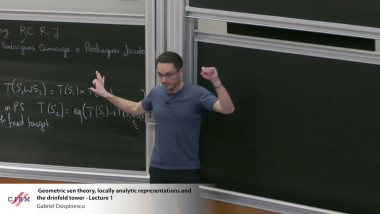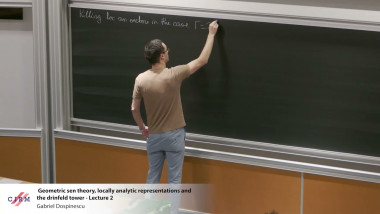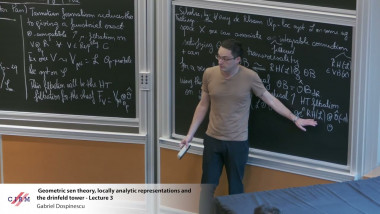On the polynomial conjecture for restrictions of nilpotent Lie groups representations
De Ali Baklouti
Let $G$ be a connected and simply connected nilpotent Lie group, $K$ an analytic subgroup of $G$ and $\pi$ an irreducible unitary representation of $G$ whose coadjoint orbit of $G$ is denoted by $\Omega(\pi)$. Let $\mathcal U(\mathfrak g)$ be the enveloping algebra of $\mathfrak g_{\mathbb C}$, $\mathfrak g$ designating the Lie algebra of $G$. We consider the algebra $D_{\pi}(G)^K\simeq (\mathcal U(\mathfrak g)/ \ker \pi)^K$ of the $K$-invariant elements of $\mathcal U(\mathfrak g)/ \ker \pi$. It turns out that this algebra is commutative if and only if the restriction $\pi|K$ of $\pi$ to $K$ has finite multiplicities (A. Baklouti–H. Fujiwara 2004). In this lecture, I will talk about the polynomial conjecture asserting that $D_\pi(G)^K$ is isomorphic to the algebra $\mathbb C[\Omega(\pi)]^K$ of $K$-invariant polynomial functions on $\Omega(\pi)$, provided that $\pi|K$ is of finite multiplicities. This is a joint work with H. Fujiwara and J. Ludwig.










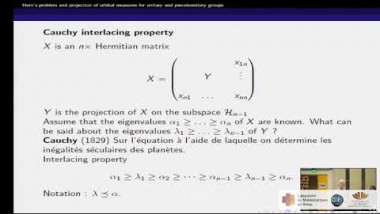
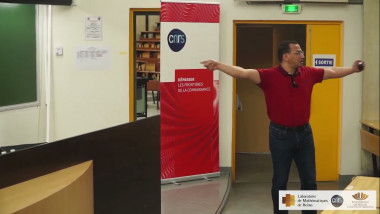
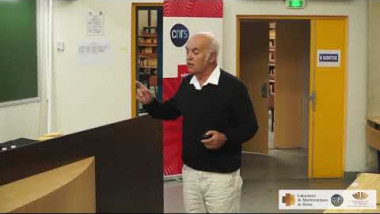
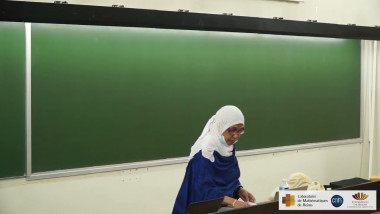
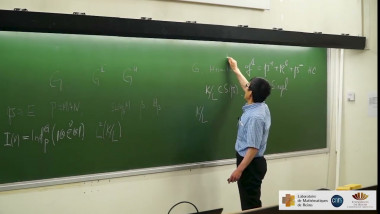


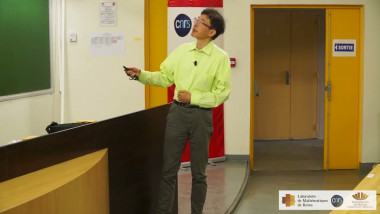
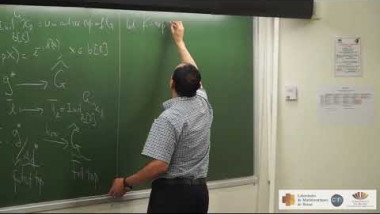

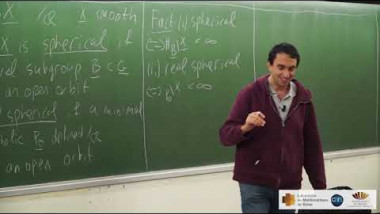

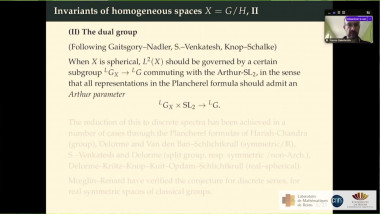
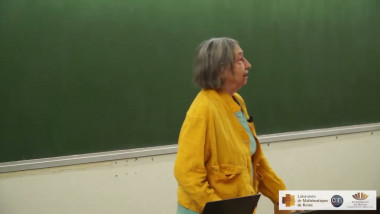
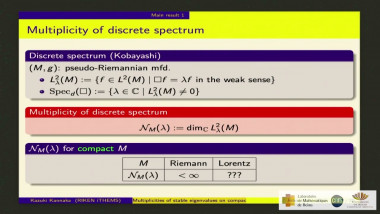
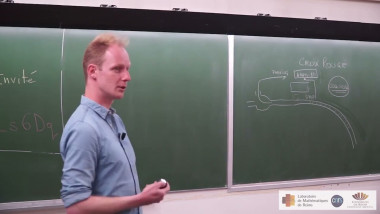
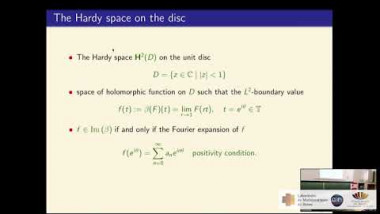
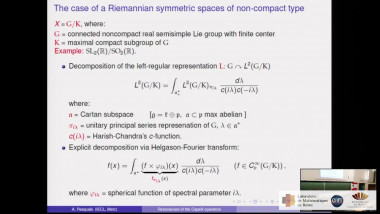
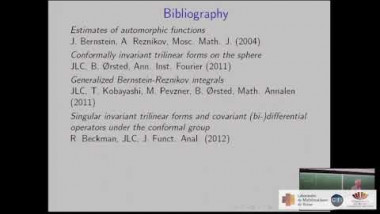
![[1248] La conjecture de Hodge pour les variétés abéliennes de dimension au plus 5](/media/cache/video_light/uploads/video/SeminaireBourbaki.png)
